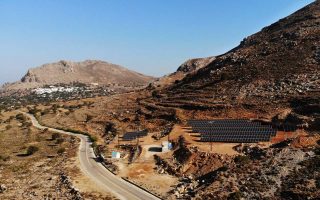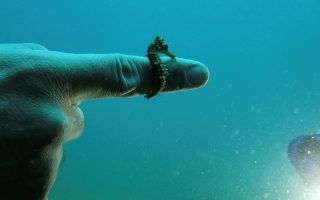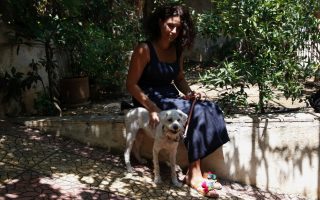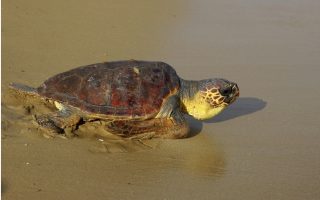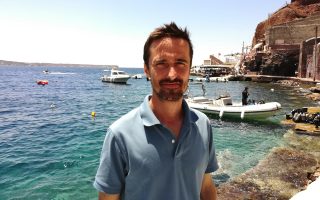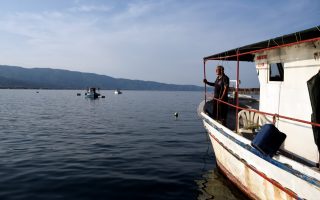Initiative aims to create comprehensive record of Greece’s cetaceans
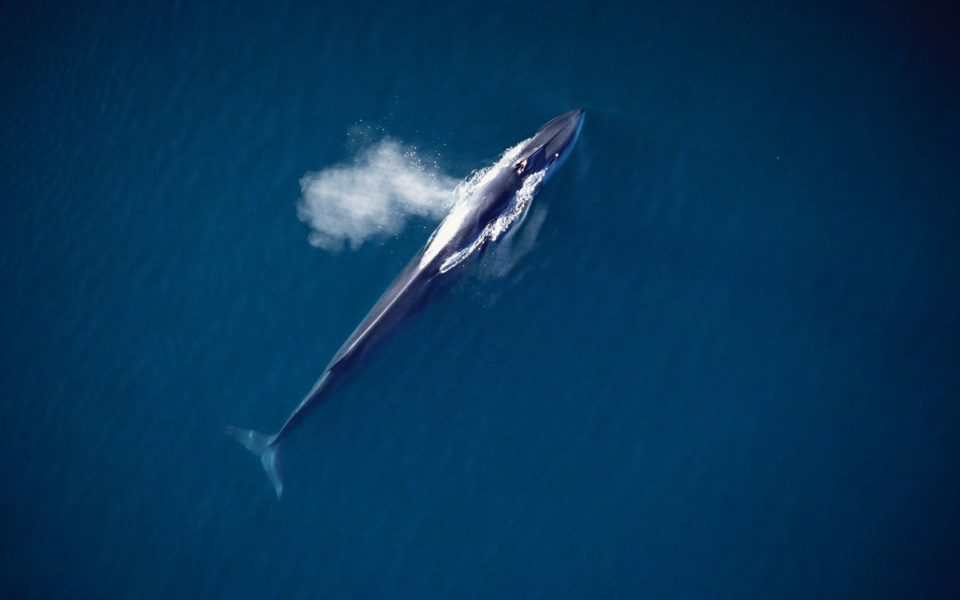
A small aircraft set off on a very special mission off the southern coast of Crete on June 3, to zigzag over hundreds of square kilometers just 180 meters from the surface of the sea for four to eight hours a day, through the summer.
Through the twin-engine survey aircraft’s balloon windows, three experts have been recording cetacean activity in what is the first concerted effort of its kind to get an understanding of their populations in Greece’s seas, but also in this part of the Mediterranean. The data will be used to design measures to protect endangered species of whales, dolphins and porpoises but also to address issues that may be affecting the fine balances of the marine environment.
“Greece is considered an extremely important area for cetaceans, yet our knowledge about them is limited and erratic,” said Costas Liarikos, head of environmental programs for the WWF Greece conservation group. “Initial efforts to improve the picture we have of them began about a decade ago with the Pelagos Cetacean Research Institute, but the systematic recording of all the different species is still a major challenge.”
The pilot phase for this new effort to record cetaceans by air was carried out last year in the Thracian Sea, in the northern Aegean. This year’s operation, however, is the first of such a broad scale, as it will take in the entire Mediterranean. It is being organized by the secretariat of the Agreement on the Conservation of Cetaceans of the Black Sea, Mediterranean Sea and contiguous Atlantic area (ACCOBAMS), an international organization composed by 24 countries and supported by 60 research agencies. WWF Greece is the chief coordinator of the program in Greece, which also includes the participation of experts from Thessaloniki’s Aristotle University and Pelagos.
Amalia Alberini, a marine biologist working with the WWF on the program, took part in the first leg of the mission south of Crete (the other three scientists on board the plane are Androniki Pardalou from Aristotle’s Department of Biology, Popi Gikopoulou from Pelagos and Dimitris Kontakos from the Samaria Gorge National Park conservation agency).
“In order to cover the entire Mediterranean area, there are eight aircraft that have come from France and are specially modified to allow scientific observation,” explains Alberini. “The plane flies at a low altitude of 180 meters above the surface of the sea, but can only do so when winds are below 3 on the Beaufort scale, which is why we were able to fly on just four days of the first two weeks of the program.”
Daily runs last between four and eight hours, depending on the conditions and the area that needs to be covered, and each plane carries two marine biologists and a person who records their observations.
“We record any cetaceans we spot, but also other species like turtles, seals, certain big fish and sea birds. We also record human activity and big pieces of debris or patches of pollution in the sea,” says Alberini.
“We have assigned special code names to each species, using the first three letters of the genus. For a sperm whale, for example, we use ‘Phy-mac’ after its Latin name, Physeter macrocephalus. Our conversation via microphone is then recorded so we can check it when we land. We describe other activities in the same way, like ‘platr’ for ‘plastic trash.’”
After leaving the area south of Crete, the team covered the Ionian Sea and then the Aegean in late July, with that area also being monitored by ship through August.
There are 12 known cetacean species living in Greek seas and the biggest threats they face are fishing (getting tangled in nets), overfishing (dwindling fish stocks), shipping (the larger cetaceans in particular are at risk of being hit by boats or their propellers) and human sounds like sonar.
The results of the Mediterranean-wide study will be presented at an international conference on cetaceans – a European first – in April next year, hosted at the luxury resort of Costa Navarino in the Peloponnese.
